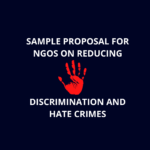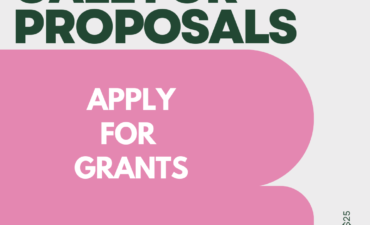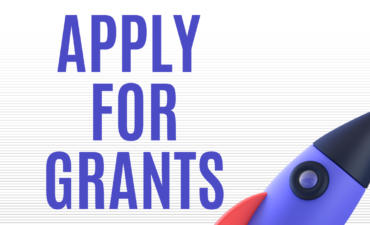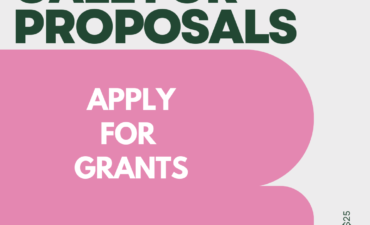Introduction: Sample Proposal for NGOs on Reducing Discrimination and Hate Crimes, In a world that prides itself on progress and inclusivity, the persistent reality of discrimination and hate crimes is a sobering reminder of the work that remains to be done. Despite advances in civil rights and social justice movements, marginalized communities continue to face prejudice, violence, and systemic barriers that impede their ability to live with dignity and equal opportunity.
Discrimination can manifest in myriad forms, ranging from subtle micro aggressions to overt acts of hatred and violence. Whether based on race, ethnicity, religion, gender, sexual orientation, disability, or other identities, these acts not only inflict profound harm on individuals but also fracture the fabric of society, eroding the principles of equality and human rights that lie at the heart of a just and harmonious world.
Hate crimes, in particular, represent the most egregious and violent manifestations of discrimination, often fueled by deep-seated biases, ignorance, and intolerance. These heinous acts shatter lives, instill fear, and perpetuate cycles of trauma that reverberate through communities, leaving indelible scars on the collective psyche.
Addressing these complex and multifaceted issues requires a comprehensive and multidisciplinary approach, one that engages stakeholders from all sectors of society – government, civil society, academia, media, and the private sector. Non-governmental organizations (NGOs), with their grassroots connections, expertise, and commitment to social justice, are well-positioned to spearhead initiatives that combat discrimination and hate crimes.
This proposal outlines a strategic framework for NGOs to tackle these pressing challenges through a multifaceted approach that encompasses education, advocacy, community engagement, and capacity-building. By leveraging their resources, networks, and unwavering dedication, NGOs can play a pivotal role in fostering inclusive societies where diversity is celebrated, and every individual is afforded the fundamental human rights of dignity, respect, and equal treatment under the law.
Background information on discrimination and hate crimes (Sample Proposal for NGOs on Reducing Discrimination and Hate Crimes)
Discrimination and hate crimes are deeply rooted societal issues that have persisted throughout human history. While their manifestations may vary across cultures and contexts, their devastating impacts transcend geographic boundaries. At their core, these phenomena stem from prejudiced beliefs, xenophobia, and the marginalization of individuals based on perceived differences. Whether motivated by race, ethnicity, religion, gender, sexual orientation, disability, or other identities, acts of discrimination and hate crimes represent a violation of fundamental human rights and a denial of the inherent dignity of all people.
Despite legal frameworks and advocacy efforts aimed at promoting equality and combating intolerance, alarming instances of discrimination and hate-motivated violence continue to occur worldwide. These incidents not only inflict profound psychological and physical harm on victims but also erode the social fabric, perpetuating cycles of fear, mistrust, and polarization within communities.
Statement of the problem and its significance
Discrimination and hate crimes pose a grave threat to the realization of inclusive and just societies. Beyond the immediate harm inflicted on individuals, these issues have far-reaching consequences that impede social cohesion, economic development, and the overall well-being of communities. When certain groups are systematically marginalized and denied equal opportunities, it not only violates their human rights but also deprives societies of the invaluable contributions these individuals could make.
Moreover, the prevalence of discrimination and hate crimes undermines the principles of democracy, equality before the law, and the fundamental values upon which modern societies are built. These issues perpetuate cycles of oppression, hinder the integration of diverse communities, and fuel social unrest, ultimately eroding the foundations of peace and stability.
Purpose and objectives of the proposal
This proposal seeks to outline a comprehensive and sustainable approach for non-governmental organizations (NGOs) to address the complex challenges of discrimination and hate crimes. By leveraging their expertise, grassroots connections, and unwavering commitment to social justice, NGOs can play a pivotal role in fostering inclusive societies where diversity is celebrated, and every individual is afforded the fundamental human rights of dignity, respect, and equal treatment under the law.
The primary objectives of this proposal are:
- To raise awareness and promote education on the root causes, manifestations, and impacts of discrimination and hate crimes, fostering greater understanding, empathy, and a culture of tolerance within communities.
- To advocate for robust legal and policy frameworks that protect vulnerable groups, ensure accountability for perpetrators, and uphold the principles of equality and non-discrimination.
- To strengthen community engagement and capacity-building initiatives that empower marginalized groups, amplify their voices, and equip them with the tools and resources necessary to combat discrimination and hate crimes.
- To facilitate cross-sectoral collaboration and partnerships among NGOs, government agencies, civil society organizations, academic institutions, and the private sector, leveraging collective expertise and resources to address these complex issues holistically.
By achieving these objectives, this proposal aims to catalyze tangible and sustainable progress in reducing the prevalence of discrimination and hate crimes, ultimately creating more inclusive, just, and harmonious societies where the inherent dignity and equal rights of all individuals are respected and upheld.
Understanding Discrimination and Hate Crimes (Sample Proposal for NGOs on Reducing Discrimination and Hate Crimes)
1. Definitions and types of discrimination
Discrimination refers to the unjust or prejudicial treatment of different categories of people, especially on the grounds of race, age, sex, or disability. It can manifest in various forms, including:
- Direct discrimination: When an individual is treated less favorably than others due to their protected characteristics, such as race, gender, religion, or disability.
- Indirect discrimination: When policies, practices, or rules that appear neutral disproportionately disadvantage certain groups of people.
- Systemic discrimination: Patterns of behavior, policies, or practices that are embedded in organizations or societal structures, perpetuating disadvantages for certain groups.
- Intersectional discrimination: When an individual faces multiple, intersecting forms of discrimination based on various identities, such as race, gender, and disability.
2. Definitions and forms of hate crimes
Hate crimes are criminal offenses motivated by bias or prejudice toward an individual’s or group’s actual or perceived race, religion, sexual orientation, disability, ethnicity, gender, or gender identity. These crimes can take various forms, including:
- Physical violence: Assaults, beatings, or other acts of physical harm targeting individuals or groups.
- Property crimes: Vandalism, arson, or other acts of property damage motivated by bias or hatred.
- Verbal harassment and intimidation: Threats, slurs, or other forms of verbal abuse aimed at individuals or groups based on their protected characteristics.
- Cyberhate: The use of online platforms and social media to spread hate speech, incite violence, or harass individuals or groups due to their identities.
3. Root causes and contributing factors
Discrimination and hate crimes often stem from complex and intertwined societal, cultural, and psychological factors, including:
- Prejudice and stereotyping: Negative attitudes, beliefs, or generalizations about certain groups based on misconceptions or lack of knowledge.
- Xenophobia and fear of the “other”: Irrational fear or dislike of people from different cultures, backgrounds, or identities.
- Normalization of discrimination: When discriminatory attitudes or behaviors become accepted or tolerated within certain social or cultural contexts.
- Socioeconomic factors: Poverty, lack of education, and limited opportunities can contribute to the perpetuation of discriminatory attitudes and hate-motivated behavior.
- Extremist ideologies: Radical or extremist belief systems that promote hatred, intolerance, or the superiority of certain groups over others.
- Lack of legal protections and accountability: Weak or inadequate legal frameworks and enforcement mechanisms that fail to address discrimination and hate crimes effectively.
4. Impact on individuals and communities
Discrimination and hate crimes have far-reaching and devastating impacts on individuals, communities, and society as a whole:
- Psychological and emotional harm: Victims often experience trauma, anxiety, depression, low self-esteem, and a general sense of insecurity and fear.
- Physical harm and loss of life: In extreme cases, hate crimes can result in serious physical injuries or even loss of life.
- Marginalization and social exclusion: Discrimination can lead to the denial of opportunities, limited access to resources, and the perpetuation of systemic disadvantages for certain groups.
- Erosion of trust and social cohesion: Acts of discrimination and hate crimes can breed mistrust, fear, and division within communities, undermining social cohesion and integration.
- Economic consequences: Discrimination in employment, housing, and other domains can limit economic opportunities and contribute to poverty and inequality.
- Violation of human rights: Discrimination and hate crimes fundamentally violate the principles of human dignity, equality, and the right to live free from fear and persecution.
Addressing these issues requires a multifaceted approach that tackles the root causes, promotes education and awareness, strengthens legal frameworks, and fosters inclusive and tolerant societies where diversity is celebrated and the rights of all individuals are respected and protected.
Existing Efforts and Challenges (Sample Proposal for NGOs on Reducing Discrimination and Hate Crimes)
- Current initiatives and programs by NGOs and other organizations
Numerous organizations, including non-governmental organizations (NGOs), civil society groups, and international bodies, have been actively working to combat discrimination and hate crimes. Some notable efforts include:
- Awareness and education campaigns: Organizations like Amnesty International, the Southern Poverty Law Center, and the Anti-Defamation League have launched campaigns to raise awareness, promote tolerance, and challenge harmful stereotypes and prejudices.
- Legal advocacy and policy reform: Groups such as the American Civil Liberties Union (ACLU), the European Union Agency for Fundamental Rights, and the International Commission of Jurists have been instrumental in advocating for stronger legal protections, policy reforms, and accountability measures.
- Community outreach and empowerment programs: Organizations like the NAACP, the Council on American-Islamic Relations (CAIR), and LGBTQ+ advocacy groups have initiated programs to empower marginalized communities, provide support services, and facilitate dialogue and understanding.
- Monitoring and reporting: Entities like the Office for Democratic Institutions and Human Rights (ODIHR) and the United Nations High Commissioner for Human Rights (OHCHR) monitor and report on incidents of discrimination and hate crimes, highlighting trends and holding governments accountable.
- Research and data collection: Academic institutions, think tanks, and research organizations have contributed to understanding the root causes, patterns, and impacts of discrimination and hate crimes, informing policy and programmatic interventions.
2. Gaps and limitations in existing efforts
Despite these commendable initiatives, several gaps and limitations persist in addressing discrimination and hate crimes effectively:
- Fragmented and uncoordinated efforts: Many initiatives operate in silos, leading to a lack of coordination, resource duplication, and limited impact at a larger scale.
- Insufficient funding and resource constraints: Many organizations tackling these issues face chronic underfunding, limiting their capacity to implement comprehensive and sustained programs.
- Legal and policy inconsistencies: Inconsistent legal frameworks, inadequate enforcement mechanisms, and varying definitions of hate crimes across jurisdictions hinder effective prosecution and prevention efforts.
- Deeply entrenched societal attitudes: Changing deeply rooted prejudices, stereotypes, and discriminatory attitudes within societies is a long-term and challenging process that requires sustained efforts.
- Limited data and underreporting: Accurate data on the prevalence and patterns of discrimination and hate crimes is often lacking, as many incidents go unreported due to fear, mistrust, or lack of access to reporting mechanisms.
3. Challenges faced in addressing discrimination and hate crimes
Tackling discrimination and hate crimes presents a multitude of challenges that require a comprehensive and sustained approach:
- Complexity of root causes: The root causes of these issues are multifaceted, involving societal, cultural, economic, and psychological factors that are deeply intertwined and difficult to disentangle.
- Intersectionality and overlapping forms of discrimination: Many individuals face multiple and intersecting forms of discrimination based on various identities, compounding the challenges they face.
- Online hate and cyberbullying: The rise of online platforms and social media has provided new avenues for the spread of hate speech, harassment, and the incitement of violence, presenting unique challenges for monitoring and regulation.
- Resistance and backlash: Efforts to address discrimination and hate crimes can sometimes face resistance, backlash, or opposition from those with entrenched biases or those who perceive these efforts as a threat to their interests or beliefs.
- Limited political will and prioritization: In some contexts, there may be a lack of political will or prioritization to address these issues effectively, leading to insufficient resources, weak enforcement, and a lack of accountability.
- Balancing human rights and freedom of expression: Striking the right balance between protecting individuals from discrimination and hate speech while upholding the principles of freedom of expression and opinion can be challenging.
Overcoming these challenges requires a multi-stakeholder approach involving governments, civil society organizations, educational institutions, the private sector, and the broader public. Through sustained efforts, policy reforms, education, community engagement, and a shared commitment to promoting tolerance, inclusivity, and human rights, progress can be achieved in creating more equitable and just societies.
Proposed Strategies and Activities (Sample Proposal for NGOs on Reducing Discrimination and Hate Crimes)
Awareness and Education
Raising awareness and promoting education are crucial components in combating discrimination and hate crimes. By fostering understanding, empathy, and a culture of tolerance, these efforts can challenge deeply rooted prejudices and stereotypes, and pave the way for more inclusive and harmonious societies.
- Public campaigns and educational programs:
-
- Launch multimedia campaigns (TV, radio, social media, billboards) to challenge negative stereotypes, promote diversity, and raise awareness about the harmful impacts of discrimination and hate crimes.
- Develop educational resources (curricula, toolkits, videos) for schools, workplaces, and community centers to facilitate discussions and workshops on topics such as cultural sensitivity, implicit bias, and recognizing and reporting hate incidents.
- Organize public events, conferences, and panel discussions featuring experts, community leaders, and survivors of discrimination and hate crimes to share their stories and perspectives.
2. Targeted outreach to specific groups or communities:
-
- Collaborate with faith-based organizations, cultural centers, and community groups to design tailored educational programs and outreach initiatives that address the unique challenges and experiences faced by different marginalized communities.
- Engage with youth groups, student organizations, and sports clubs to promote messages of inclusion, respect, and solidarity, leveraging the power of peer-to-peer influence.
- Develop targeted campaigns and resources in multiple languages and formats to ensure accessibility and cultural relevance for diverse populations.
3. Collaboration with educational institutions:
-
- Partner with schools, colleges, and universities to integrate curriculum modules on diversity, human rights, and combating discrimination into formal education programs.
- Provide training and resources for educators to facilitate discussions on these topics, address biases, and create inclusive learning environments.
- Encourage and support student-led initiatives, such as clubs, workshops, and awareness campaigns, to promote understanding and address issues of discrimination and hate crimes on campuses.
- Collaborate with academic institutions to conduct research, gather data, and develop evidence-based strategies for addressing discrimination and hate crimes in educational settings.
By implementing these awareness and educational strategies, NGOs can play a vital role in shaping attitudes, promoting empathy, and equipping individuals and communities with the knowledge and skills necessary to recognize, challenge, and prevent acts of discrimination and hate crimes.
Advocacy and Policy Reform
Tackling discrimination and hate crimes requires robust legal frameworks and effective enforcement mechanisms. NGOs can play a pivotal role in advocating for policy reforms and holding governments and institutions accountable through the following strategies:
- Lobbying for stronger legislation and enforcement:
-
- Conduct comprehensive reviews and analyses of existing laws, policies, and enforcement practices related to discrimination and hate crimes, identifying gaps, inconsistencies, and areas for improvement.
- Develop evidence-based policy recommendations and draft model legislation to strengthen legal protections, enhance penalties for perpetrators, and address emerging forms of discrimination and hate crimes, such as those occurring online or in the workplace.
- Engage in lobbying efforts with policymakers, legislators, and government officials to advocate for the adoption and implementation of these recommended legal and policy reforms.
- Mobilize grassroots support and forge strategic coalitions with other NGOs, civil society organizations, and influential stakeholders to amplify advocacy efforts.
2. Engaging with policymakers and law enforcement agencies:
-
- Establish channels for regular dialogue and consultation with policymakers, law enforcement agencies, and criminal justice officials to provide expertise, share data and insights, and collaborate on strategies to combat discrimination and hate crimes effectively.
- Facilitate training and capacity-building programs for law enforcement personnel, prosecutors, and judges to enhance their understanding of these issues, improve investigation and prosecution procedures, and ensure fair and impartial application of the law.
- Participate in policy advisory committees, task forces, and working groups to provide input and recommendations on policies, protocols, and best practices related to addressing discrimination and hate crimes.
3. Monitoring and reporting on incidents:
-
- Establish robust monitoring and data collection mechanisms to track incidents of discrimination and hate crimes, including their nature, prevalence, and impacts on affected communities.
- Develop user-friendly reporting systems and hotlines to encourage victims and witnesses to report incidents, ensuring confidentiality and support services are available.
- Produce periodic reports and analyses highlighting trends, patterns, and systemic issues, using this data to advocate for policy changes, resource allocation, and targeted interventions.
- Collaborate with international human rights bodies, such as the United Nations and regional organizations, to report on national-level progress, challenges, and compliance with international human rights standards related to combating discrimination and hate crimes.
By adopting these advocacy and policy reform strategies, NGOs can drive meaningful change by influencing the legal and policy landscape, fostering greater accountability, and ensuring that robust mechanisms are in place to prevent, respond to, and address instances of discrimination and hate crimes effectively.
Community Engagement and Empowerment
- Fostering dialogue and understanding among diverse groups:
-
- Organize community dialogues, town halls, and forums that bring together members of different racial, ethnic, religious, and cultural groups to share perspectives, address misunderstandings, and build relationships based on mutual respect and understanding. These events create a safe space for open and honest conversations, allowing diverse groups to learn from each other and find common ground.
- Facilitate structured dialogue programs and conflict resolution workshops to address deep-rooted tensions, heal past traumas, and promote reconciliation within and among communities affected by discrimination and hate crimes. These programs use techniques like mediation and restorative justice to address underlying conflicts and promote healing.
- Encourage and support the formation of interfaith, intercultural, and intergenerational initiatives that promote cross-cultural exchange, celebration of diversity, and the dismantling of stereotypes and prejudices. These initiatives bring together people of different faiths, cultures, and ages to celebrate their differences, learn about each other’s traditions, and break down barriers through shared experiences.
2. Capacity building and leadership development:
-
- Conduct training programs and workshops to equip members of marginalized communities with knowledge of their rights, legal remedies, and strategies for advocating for their interests and addressing discrimination and hate crimes. These trainings empower individuals with the knowledge and tools to stand up against injustice and advocate for themselves.
- Identify and nurture emerging leaders from within affected communities, providing them with mentorship, resources, and platforms to amplify their voices and drive positive change. By investing in leadership development, NGOs can cultivate a new generation of advocates and change-makers from within marginalized communities.
- Facilitate skill-building workshops on topics such as public speaking, media engagement, community organizing, and advocacy to empower individuals and groups to effectively communicate their narratives and advocate for their causes. These practical skills enable individuals to share their stories, raise awareness, and mobilize support for their causes.
- Support the establishment of community-based organizations and initiatives led by members of marginalized groups, providing them with technical assistance, funding opportunities, and networking resources to strengthen their capacity and impact. By empowering grassroots organizations, NGOs can amplify the voices and work of those directly impacted by discrimination and hate crimes.
3. Establishing support systems and resources:
-
- Develop and promote accessible reporting mechanisms, hotlines, and support services for victims of discrimination and hate crimes, ensuring confidentiality, cultural sensitivity, and access to legal aid, counseling, and other essential services. These resources provide victims with a safe and supportive way to report incidents and access the help they need.
- Collaborate with law enforcement agencies, healthcare providers, and social service organizations to establish protocols and referral systems that provide comprehensive support and resources for those impacted by these incidents. By coordinating efforts across various sectors, victims can receive holistic support addressing their physical, emotional, and legal needs.
- Create safe spaces, such as community centers or online forums, where members of marginalized groups can connect, share experiences, and access information and resources related to combating discrimination and hate crimes. These spaces foster a sense of community, reduce isolation, and provide valuable resources.
- Facilitate the creation of peer support networks, mentoring programs, and advocacy groups that empower individuals to support one another, share coping strategies, and collectively advocate for change. By fostering collective action and mutual support, individuals can find strength in numbers and work towards systemic change.
Research and Data Collection
- Conducting Studies and Gathering Data:
In order to effectively address discrimination and hate crimes, it’s crucial to conduct comprehensive studies and gather relevant data.
This involves:
- Designing research methodologies tailored to the specific context and objectives of the project.
- Utilizing a combination of qualitative and quantitative data collection methods, such as surveys, interviews, focus groups, and analysis of existing data sources.
- Engaging with affected communities, stakeholders, and experts to ensure inclusivity and comprehensive data collection.
- Adhering to ethical standards and protocols to protect the rights and privacy of participants.
Through this process, we aim to gather insights into the prevalence, forms, and underlying causes of discrimination and hate crimes within our target communities.
2. Identifying Patterns and Trends:
Once data is collected, it will be analyzed to identify patterns and trends related to discrimination and hate crimes.
This involves:
- Utilizing data analysis techniques to identify correlations, trends, and disparities in experiences of discrimination and incidents of hate crimes.
- Identifying commonalities and differences across various demographic groups, geographic locations, and socio-economic backgrounds.
- Examining root causes and contributing factors to discrimination and hate crimes, including societal attitudes, systemic inequalities, and institutional biases.
By identifying patterns and trends, we can gain deeper insights into the dynamics of discrimination and hate crimes, which will inform the development of targeted interventions and strategies.
3. Informing Policy and Program Development:
The research findings and data analysis will serve as a foundation for informing policy and program development aimed at reducing discrimination and hate crimes. This involves:
- Translating research insights into actionable recommendations for policy reform, legislative measures, and institutional interventions.
- Collaborating with policymakers, advocacy groups, and relevant stakeholders to advocate for evidence-based policy changes and initiatives.
- Developing targeted programs and interventions that address the underlying drivers of discrimination and promote social inclusion, diversity, and tolerance.
- Monitoring and evaluating the effectiveness of policies and programs over time, and adjusting strategies based on ongoing research and data collection.
By integrating research findings into policy and program development, we can foster a more inclusive and equitable society, where all individuals are treated with dignity and respect, and where discrimination and hate crimes are effectively addressed and prevented.
Implementation Plan (Sample Proposal for NGOs on Reducing Discrimination and Hate Crimes)
- Project Timeline and Milestones
The success of our initiative to reduce discrimination and hate crimes hinges on meticulous planning and adherence to a well-defined project timeline. Our timeline spans across key phases, each meticulously crafted to ensure efficient progression towards our objectives.
- Research and Planning Phase (Month 1-2): During this phase, we will conduct comprehensive research to understand the prevailing dynamics of discrimination and hate crimes within our target communities. This will involve literature reviews, stakeholder consultations, and the development of research methodologies.
- Data Collection Phase (Month 3-5): Building upon the insights garnered from the research phase, we will embark on an extensive data collection process. Utilizing a combination of qualitative and quantitative methods such as surveys, interviews, and data analysis, we will gather robust empirical evidence to inform our interventions.
- Program Development and Implementation Phase (Month 6-10): With a solid foundation of research and data in place, we will proceed to develop and implement targeted programs and interventions. These initiatives will be tailored to address the root causes of discrimination and hate crimes, foster social inclusion, and promote tolerance and diversity within our communities.
- Monitoring and Evaluation Phase (Ongoing): Throughout the project duration, we will continuously monitor progress against predefined milestones and indicators. Regular evaluations will be conducted to assess the effectiveness of our interventions and identify areas for improvement. This iterative process will ensure that our efforts remain responsive to the evolving needs of our target populations.
2. Roles and Responsibilities
Our project will rely on a dedicated team of individuals, each contributing their unique expertise and skills towards the realization of our goals.
- Project Manager: The project manager will oversee the overall coordination and implementation of activities, ensuring alignment with project objectives and timelines.
- Research Coordinator: Responsible for leading the research efforts, the research coordinator will design methodologies, oversee data collection, and analyze findings to inform program development.
- Community Outreach Specialist: Charged with fostering partnerships and collaborations, the community outreach specialist will engage with stakeholders, build relationships, and ensure community participation and buy-in.
- Program Officers: Program officers will be responsible for the development, implementation, and evaluation of specific interventions, working closely with community members and partner organizations.
3. Partnerships and Collaborations
Collaboration lies at the heart of our approach to tackling discrimination and hate crimes. We recognize the importance of forging meaningful partnerships with a diverse range of stakeholders to maximize our impact.
- Government Agencies: Partnering with government agencies will enable us to leverage existing resources and infrastructure, as well as advocate for policy changes and legislative reforms.
- Civil Society Organizations: Collaborating with NGOs and advocacy groups will broaden our reach and access to communities, as well as facilitate knowledge sharing and capacity building.
- Academic Institutions: Engaging with academic institutions will provide access to research expertise, data analysis capabilities, and innovative approaches to addressing social issues.
- Affected Communities: Central to our approach is the empowerment of affected communities, ensuring their voices are heard, and their needs are prioritized throughout the project lifecycle.
4. Monitoring and Evaluation Strategies
A robust monitoring and evaluation framework will underpin our efforts, enabling us to track progress, measure impact, and make evidence-based decisions.
- Monitoring Mechanisms: We will implement regular data collection processes to monitor project activities, outputs, and outcomes against predefined indicators and targets.
- Evaluation Framework: Evaluations will be conducted periodically to assess the effectiveness of our interventions in reducing discrimination and hate crimes, as well as their contribution to broader social change.
- Feedback Loops: Feedback mechanisms will be established to solicit input from stakeholders and beneficiaries, ensuring their perspectives inform project implementation and adaptation.
By meticulously planning our activities, delineating clear roles and responsibilities, fostering strategic partnerships, and implementing robust monitoring and evaluation mechanisms, we are confident in our ability to effect positive change and create more inclusive and equitable communities free from discrimination and hate crimes.
Budget and Resource Requirements
(Sample Proposal for NGOs on Reducing Discrimination and Hate Crimes)
| Item | Description | Cost ($) | Potential Funding Source |
| A. Personnel Costs | |||
| Project Manager | Salary for project management | 10,000 | |
| Research Coordinator | Salary for research coordination | 8,000 | |
| Community Outreach Specialist | Salary for community engagement | 8,500 | |
| Program Officers (2) | Salary for program implementation | 15,000 | |
| Total Personnel Costs | $41,500 | ||
| B. Program and Activity Expenses | |||
| Research Materials | Surveys, data collection tools | 2,500 | |
| Community Workshops | Venue rental, materials | 5,000 | |
| Training Sessions | Facilitator fees, materials | 3,000 | |
| Intervention Programs | Materials, transportation | 10,000 | |
| Total Program Expenses | $20,500 | ||
| C. Administrative and Operational Costs | |||
| Office Rent | Rental expenses for project office | 3,000 | |
| Utilities | Electricity, water | 1,500 | |
| Office Supplies | Stationery, printing | 1,000 | |
| Communication | Phone, internet | 2,000 | |
| Staff Training | Professional development | 4,000 | |
| Total Admin & Operational Costs | $11,500 | ||
| D. Potential Funding Sources | |||
| XYZ Foundation Grant | Grant for project implementation | $50,000 | |
| Government Grant | Funding for research and programs | $30,000 | |
| Corporate Sponsorship | Support for outreach and operational costs | $20,000 | |
| Individual Donations | Contributions from community members | $15,000 | |
| Total Potential Funding | $115,000 |
These dummy/sample costs give you an idea of how you can input actual cost values into your budget spreadsheet. You can adjust these values based on your specific project requirements and funding sources.
In conclusion, we have outlined a comprehensive proposal aimed at reducing discrimination and hate crimes, encompassing research, program development, budgeting, and potential funding sources. As you consider the contents of this proposal, we urge you to tailor it to the specific needs and context of your organization or community. Each situation is unique, and customization ensures that the strategies proposed align closely with your goals and priorities. By adapting the proposal to your context, you can maximize its effectiveness in addressing the challenges of discrimination and hate crimes in your area. We look forward to working together to create positive change and foster a more inclusive and equitable society.
Related Good Reads, Link
Hey, STEAL our Best Premium Content For Absolutely Free, Check Out the Links below
HOPE these will add value to your existing skills and knowledge
Our information bears no cost (it’s absolutely FREE), don’t let valuable information slip away.
Join our community of avid readers who are always in the know. Subscribe to our website; stay connected and engaged with the latest news, trends, and developments by subscribing today.
(PUSH the bell ICON)
Leverage the power of knowledge to propel your organization to new heights. Don’t miss out to explore our content
- Latest Funds for NGOs,
- NGO Jobs
- Resources (Helpful Guides and Courses)
- Premium Resources
- NGO related articles
Empowering Humanity through Funds, Resources and Collective Action
Sharing is Appreciated









